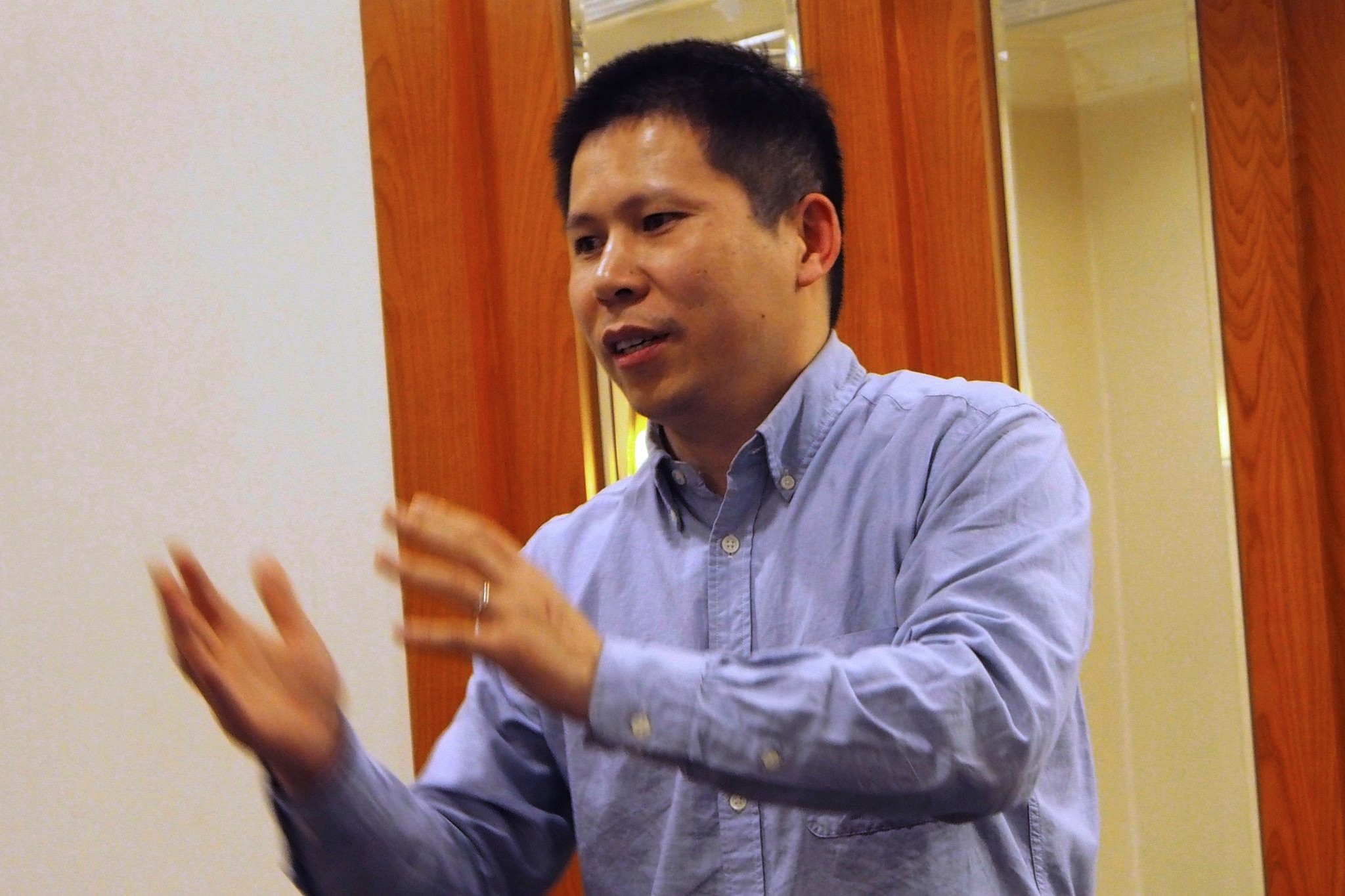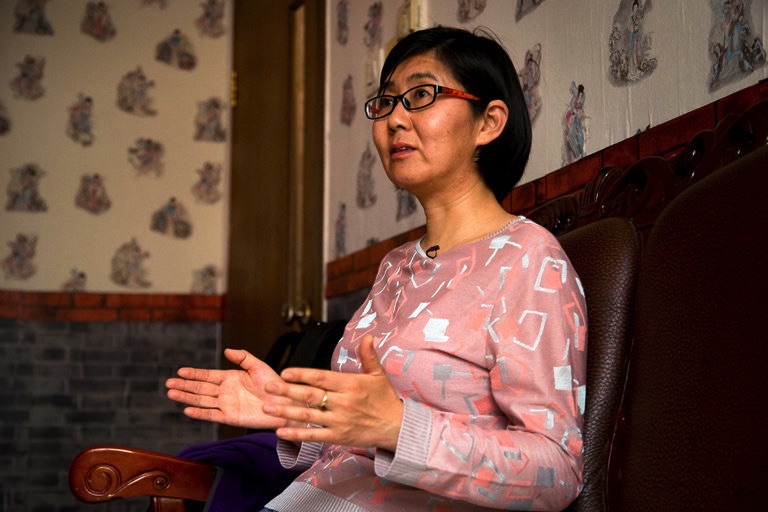You know the meme – when you work with bad guys, you should expect to be labeled a bad guy. I mean no disrespect to the thousands of Chinese companies doing business across the world that manage to be profitable without intimate Chinese government relations. But in our globalized, internet era, it is impossible for a high tech company, particularly one as fundamentally important to internet networks, to not be tarnished with the specter of theft of intellectual property and CCP internet control and monitoring of Chinese businesspeople, students, even foreigners.
Probably no one outside a small group of analysts has the actual evidence of real dirt on Huawei. But that is the risk of being a national champion in China. If the government is promoting you, then there must be a government interest in promoting you, beyond just “go team.” This is simply Chinese practical reasoning.
But it seems that lying down with dogs is more than just a saying here. In his extraordinary Sinocism news blog, Bill Bishop continues the Huawei stories. From the February 9 edition, with no repetition in the stories (all should be clickable) –
1. Huawei’s bad start to the Year of the Pig
Trump likely to sign executive order banning Chinese telecom equipment next week – POLITICO:
President Donald Trump is expected to sign an executive order, banning Chinese telecom equipment from U.S. wireless networks before a major industry conference at the end of February, three sources told POLITICO.
The administration plans to release the directive, part of its broader effort to protect the U.S. from cyber threats, before MWC Barcelona, formerly known as Mobile World Congress, which takes place Feb. 25 to Feb. 28.
Mobile network operator’s body GSMA considers crisis meeting over Huawei | Reuters:
Mobile communications industry body GSMA has proposed its members discuss the possibility that Chinese network vendor Huawei [HWT.UL] is excluded from key markets, amid concerns such a development could set operators back by years…
GSMA Director General Mats Granryd has written to members proposing to put the debate around Huawei onto the agenda of its next board meeting, a spokesman for the federation told Reuters on Saturday.
The meeting will be held in late February on the sidelines of the Mobile World Congress, the industry’s biggest annual gathering, in Barcelona.
Trump envoy urges Europe to ‘link arms’ against China – POLITICO:
Describing China’s influence as “malign,” Gordon Sondland, the U.S. ambassador to the European Union, told POLITICO that his country and the EU should overcome their current trade tensions and join forces against the Chinese.
“We should … combine our mutual energies — we have a $40 trillion combined GDP, there is nothing on the planet that is more powerful than that — to meet China and check China in multiple respects: economically, from an intelligence standpoint, militarily,” he said in an interview.
“That’s where the EU and U.S. really should be linking arms,” Sondland continued, advocating for “a quick resolution that would move our trade relationship in the right direction so that we can both turn toward China, which is really the future problem in multiple respects.”
Huawei Deals for Tech Will Have Consequences, U.S. Warns EU – Bloomberg:
“There are no compelling reasons that I can see to do business with the Chinese, so long as they have the structure in place to reach in and manipulate or spy on their customers,” Ambassador Gordon Sondland, Trump’s envoy in Brussels, said Thursday in an interview. “Those who are charging ahead blindly and embracing the Chinese technology without regard to these concerns may find themselves in a disadvantage in dealing with us.”
Huawei representative rebukes US ambassador’s accusation, defends integrity and safety – China Daily:
“Recently, Huawei has been under constant attack by some countries and politicians. We are shocked, or sometimes feel amused, by those ungrounded and senseless allegations,” said Abraham Liu, Huawei’s vice-president for the European region and chief representative to the EU institutions.
“For example, yesterday, the US ambassador to the European Union, Mr (Gordon) Sondland, said (that) someone in Beijing (could) remotely run a certain car off the road on 5G network and kill the person that’s in it. This is an insult to people’s intelligence, let alone the technological experts across the world,” Liu said.
Chinese firm Huawei blocked from ‘sensitive state projects’ and 5G amid security concerns-The Sun:
New laws on foreign investment in the UK will block Chinese firm Huawei from sensitive state projects, The Sun can reveal… senior Cabinet ministers and Britain’s most senior civil servant Mark Sedwill fear Huawei’s involvement in such critical infrastructure could jeopardise national security.
They are planning reforms to allow the Government to ban Chinese firms like Huawei from future involvement in “strategically significant” UK tech projects.
Huawei Says U.K. Software Issues Will Take Years to Fix – WSJ $$:
The telecom giant also said in a letter to the U.K. Parliament that its board of directors has signed off on a companywide overhaul of its software engineering, budgeting $2 billion over five years for the effort..
German ministers meeting to discuss how to deal with Huawei in 5G auction: source | Reuters:
Chancellor Angela Merkel said on Tuesday that Germany needed guarantees that Huawei would not hand over data to the Chinese state before the telecoms equipment supplier can participate in building its 5G network.
German newspaper Handelsblatt said Wednesday’s meeting would focus on whether a security catalog, prepared by the Federal Network Agency and the cyber defense agency (BSI), along with certification rules and a no-spy agreement with China, would be enough to ensure future 5G mobile networks are safe.
Norway’s PST warns against Huawei – Newsinenglish.no:
Justice Minister Tor Mikkel Wara of the Progress Party, who joined Bjørnland at Monday’s PST briefing, later announced that measures would be introduced to reduce the vulnerability of the Norwegian network. The goal is to hinder Norway’s large mobile operators Telenor, Telia and Ice from choosing equipment suppliers that could threaten the nation’s and their users’ security. Huawei is the prime target.
China hacked Norway’s Visma to steal client secrets: investigators | Reuters:
Hackers working on behalf of Chinese intelligence breached the network of Norwegian software firm Visma to steal secrets from its clients, cyber security researchers said, in what a company executive described as a potentially catastrophic attack.
The attack was part of what Western countries said in December is a global hacking campaign by China’s Ministry of State Security to steal intellectual property and corporate secrets, according to investigators at cyber security firm Recorded Future.
China says it is not a threat to Norway, denies cyber espionage | Reuters:
“China poses no threat to Norway’s security. It’s very ridiculous for the intelligence service of a country to make security assessment and attack China with pure hypothetical language,” the Chinese Embassy in Oslo said in a statement on its website.
Huawei Threatens Lawsuit Against Czech Republic After Security Warning – The New York Times:
The warning, which carries the force of law, requires all companies in the Czech Republic that are deemed critical to the nation’s health to perform a risk analysis that takes security concerns into account.
China denies ‘ridiculous’ spying allegations by Lithuania | AFP:
Earlier in the week, two Lithuanian intelligence agencies condemned China for an “increasingly aggressive” spy campaign, which they said included “attempts to recruit Lithuanian citizens”.
Darius Jauniskis, head of Lithuania’s State Security Department, said his agency was analysing the potential “threat” posed by Huawei, whose technology is being used to build the EU and Nato state’s new 5G telecommunications infrastructure.
Huawei offers to build cyber security center in Poland | Reuters:
Italy denies it will ban Huawei, ZTE from its 5G plans | Reuters:
Thailand launches Huawei 5G test bed, even as U.S. urges allies to bar Chinese gear | Reuters:
Stanford halts research ties with Huawei amid surveillance controversy – The Stanford Daily
Vermont phone carriers in dispute over concerns about Chinese firm Huawei – VTDigger
2. FBI raids Huawei’s San Diego offices
This is a damning story. One argument some defenders of Huawei have used is that the firm’s culture has changed since inception and while it committed an “original sin” of IP theft in its early years now that it is a global tech firm its behavior has changed. This story destroys that argument.
Huawei Sting Offers Rare Glimpse of U.S. Targeting Chinese Giant – Bloomberg:
Diamond glass could make your phone’s screen nearly unbreakable—and its inventor says the FBI enlisted him after Huawei tried to steal his secrets…
The first sign of trouble came two months later, in May, when Huawei missed the deadline to return the sample. Shurboff says his emails to Han requesting its immediate return were ignored. The following month, Han wrote that Huawei had been performing “standard” tests on the sample and included a photo showing a big scratch on its surface. Finally, a package from Huawei showed up at Gurnee on Aug. 2. ..
Shurboff says he knew there was no way the sample could have been damaged in shipping—all the pieces would still be there in the case. Instead, he believed that Huawei had tried to cut through the sample to gauge the thickness of its diamond film and to figure out how Akhan had engineered it. “My heart sank,” he says. “I thought, ‘Great, this multibillion-dollar company is coming after our technology. What are we going to do now?’”..
The FBI raided Huawei’s San Diego facility on the morning of Jan. 28. That evening, the two special agents and Assistant U.S. Attorney Kessler briefed Khan and Shurboff by phone. The agents described the scope of the search warrant in vague terms and instructed Khan and Shurboff to have no further contact with Huawei.
———-
It is an old truism that China tends to be tone deaf in dealing with foreigners, particularly on foreign policy issues. So we find no small sense of irony in the story from Reuters last week Huawei Offers to Build Cyber-security Center in Poland – “China’s Huawei has offered to build a cyber security center in Poland where last month authorities arrested a Chinese employee of the telecommunications firm along with a former Polish security official on spying charges.”
One of the stories circulating in the past couple of years is that Huawei might have stolen some technology early in its life, but those days are over now, all is in the past, now we are in a new era. Stories from the bad old days – In 2002, Cisco Systems Inc. accused (Huawei) company of stealing source code for its routers. Motorola said in a 2010 lawsuit that Huawei had successfully turned some of its Chinese-born employees into informants. And in 2012 the U.S. House Intelligence Committee labeled Huawei a national security threat and urged the government and American businesses not to buy its products. Huawei denied all the claims. The Cisco and Motorola lawsuits ended with settlements.
For anyone still unsure of the extent of Huawei espionage or theft, there is this Bloomberg story – Huawei Sting Offers Rare Glimpse of the US Targeting a Chinese Giant. This story is about a small American company creating a “diamond glass” computer screen that would be stronger than anything now on the market. The diamond glass story is about an IP theft from last August.
The detention of Meng Wanzhou, originally on charges of violating economic sanctions against Iran by using a shell company to get around restrictions, now seems less of a political stunt. From the Chinese foreign ministry – “For a long time, the U.S. has used state power to smear and attack certain Chinese companies in an attempt to stifle legitimate business operations … Behind that, there is strong political motivation and manipulation. We strongly urge the U.S. to stop unreasonable suppression of Chinese companies, including Huawei, and treat Chinese enterprises fairly and objectively.”
Un huh. One can only hope that Huawei is not treated as “fairly and objectively” as Trump treated ZTE.




 Chinese artist who posted funny image of President Xi Jinping facing five years in prison as authorities crackdown on dissent in the arts. Independent, May 28, 2015
Chinese artist who posted funny image of President Xi Jinping facing five years in prison as authorities crackdown on dissent in the arts. Independent, May 28, 2015
A Note on the Middle Income Trap
In the last couple of years, a number of China political observers have commented on the dangers to China of the middle income trap. The fear is that the Chinese economy will fall into the trap. Since economic growth is the remaining claim to legitimacy for CCP, a substantial slowdown from real growth rates of 6 to 15 per cent per year, which obtained in the last forty years, will be disturbing to the harmony that keeps CCP in power.
In what follows I am not making direct claims for or against the middle income trap in China, only describing the concept.
What does the middle income trap mean?
Most models of national development posit a growth track that demands –
– increased savings, so savings can be used for investment;
– an abundant low wage population;
– transfer of low wage, low productivity workers into higher productivity jobs in factories;
– promotion of exports; and
– a progression to higher levels of productivity, eventually approaching the GDP per person levels of the most developed countries.
Only a few countries – notably, the Asian Tigers – Singapore, South Korea, Taiwan, Hong Kong – have made that transition. More countries have begun the transition and after a couple of decades, found themselves stuck – unable to significantly increase GDP per person. That list is longer – Mexico, Philippines, Malaysia, Indonesia, Turkey. The World Bank has identified 37 countries that are prisoners of the middle income trap. These countries have achieved middle-income country status, but seem unable to pass that barrier, or trap.
It is important to note that the middle income trap does not mean people are starving, or in poor health. It does not mean that economies are failing, only that GDP/person is failing to grow much. National economies are stuck, not declining. But notably, economic performance is the remaining claim to legitimacy for CCP, now that Marxism-Leninism is discredited (except for Mr. Xi) and nationalism is a dangerous ally. If nothing else, the middle income trap may be just reversion to the mean of GDP growth. But that alone is scary for a government whose claim to legitimacy is growth.
Reasons for the middle income trap include the need to transition institutional arrangements, from those that worked well when the country was emerging from poverty to those needed for higher quality growth – one can imagine changes in rules about finance, banking, savings, property ownership, transfers of ownership, control of bribery and corruption. With increasing sophistication of work come demands for increasing sophistication of education – workers in finance need different training than workers on factory assembly lines. Also, changes in cultural features – attitudes to education, health care, family connectedness. Acemoglu and Robinson in Why Nations Fail boil most of the necessary changes down to institutional change – rules, regulations, laws, customs built in to culture.
Is there evidence for the middle income trap in China? Here are some things that keep Chinese macroeconomists up at night.
Scott Rozelle, education and health researcher in rural China, defines part of the problem, not mentioned in glowing reviews of Chinese economic power. In decades of research across many Chinese provinces, he finds that iron deficiency anemia was present in 40% of students in fourth and fifth grade in at least four rural provinces; in Guizhou and other southern provinces, 50% of children suffered from at least one type of intestinal parasite; and nearsightedly was common in schoolchildren, but went unaddressed in many rural areas. Health care and education in rural areas is now significantly better than twenty years ago, but problems persist for much of the rural population. The health problems are definitely treatable; but they persist, nevertheless. Rozelle has found that 15% to 20% of rural kids do not do not complete middle high school. That is a fearful statistic for future growth. Many of those same kids are affected by poor quality or poisonous drinking water, or rice laden with heavy metals, or air that is even more poisonous. China has been a leader in flashy environmental projects – wind, solar, dam construction. Not so much in the unflashy, dirty job of cleaning air, water, land, or ensuring food quality. Spending on those items will make no contribution to exports or factory technology or even short term health. For local officials, what’s the point?
For those rural kids, China now has much less ability to build on exports to fuel internal growth. The rural school children who don’t go to high school are not going to swing investment deals in London, and other countries in Asia and Africa are now lower cost producers of commodity and low-end products. That part of the growth path is now less available in China for the 800,000,000 or so who are not middle class and living in Beijing or Shanghai or Hangzhou. How will they flourish?
That is one side of the problem. Another side is the ability of superior Chinese scientists and engineers to continue with indigenous innovation. In one sense, this is not a problem – what is not invented can be stolen, as in the past. But innovation is no longer an individual working in his garage, but coordinated lab work and bench work and computer work, and collaboration with people outside China is vital. The Great Firewall, in all its manifestations, inhibits that. On a project basis, that may not be much of a problem. In addition to theft, direct internet access to western journals and scientific reports in readily available within scientific and engineering schools and labs. The firewall, which is eminently adjustable locally, does not affect them. On another level, however, those same scientists and engineers can find themselves unable to participate in the events of the world in which they have an interest – conferences and symposia and simply news of family and friends outside China. Sometimes, these sophisticated workers find the daily restrictions and requirements – writing paeans to Xi Jinping Thought, as is a current requirement – to be just too stupid, and they leave. They don’t want their kids to write such paeans, either.
When we look at the macroeconomic picture of China is all its glory and warts, we come down to the Acemoglu and Robinson prescription – institutional change. The change required is not small. It is systemic, and at the heart of the Chinese model for the last forty years – financial repression and investment in infrastructure and real estate. Interest on savings in banks was held low, so loans to SOE and other factories and real estate developers could be held low as well. The hukou kept peasants out of cities, keeping social overhead capital for poor people – primary and secondary education, health care, low income housing, pensions – mostly out of government budgets. But changing the model means changing the relative shares of income in the economy – poor people and farmers and ordinary savers need to get a larger share of total income, and lots of vested interests in government and SOE and banks need to get a smaller share. The reluctance to share in China is no less than it is on Wall Street, hence the political conundrum. Social spending in China on education and health care and pensions needs to go up significantly, as China ages and education needs are greater and pensions, long a source of misspent and stolen funds and poor accounting, become a bigger factor in people’s lives.
Truthfully, when reform began in 1978, China did need every piece of infrastructure that it could build – trains, planes, airports, ports, expressways, housing, factories, offices. Now, what was needed is built, and far more. The return to GDP from more construction is less and less. That contributor to GDP growth is no more. But building more stuff is the only lever that officials have right now to goose short term GDP.
Finally, the world is no longer cooperating with China. For forty years, in the US and Europe, policy makers were willing to accept some job losses in return for low priced consumer goods. Now, in 2019, governments are less willing to trade jobs and technology for low priced shirts and televisions. That is one threat facing China. Another is the economic construct of a secular stagnation, a general slowdown in all the advanced economies attributable to ageing populations (which don’t buy as much), greater income disparities (since the wealthy don’t simply buy more food or shirts or televisions), greater savings in advanced economies (due to risks of recession or simple job loss), and even greater flexibility in wages and prices, which we normally think of as a good economic outcome (flexibility can increase savings and decrease spending because incomes can now fall as well as rise). In general, there is more savings than the world can profitably use, and investment levels remain anemic. This is certainly not good for China exports or profitable Chinese infrastructure investments overseas.
There is no guarantee that GDP/person will fail to grow in China. But the threat is there, as evidenced by the paper by Barry Eichengreen, Donghyun Park, Kwanho Shin in 2013 – Growth Slowdowns Redux: New Evidence on the Middle-Income Trap. Their conclusion – We also find that slowdowns are less likely in countries where the population has a relatively high level of secondary and tertiary education and where high-technology products account for a relatively large share of exports, consistent with our earlier emphasis of the importance of moving up the technology ladder in order to avoid the middle-income trap.
That is what CCP theoreticians and macroeconomists are thinking about.